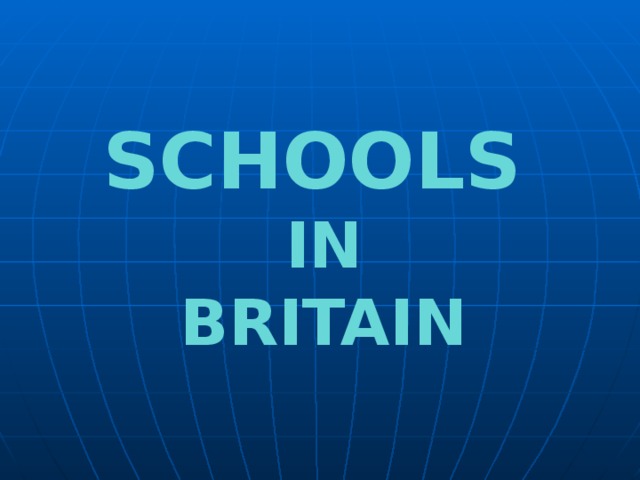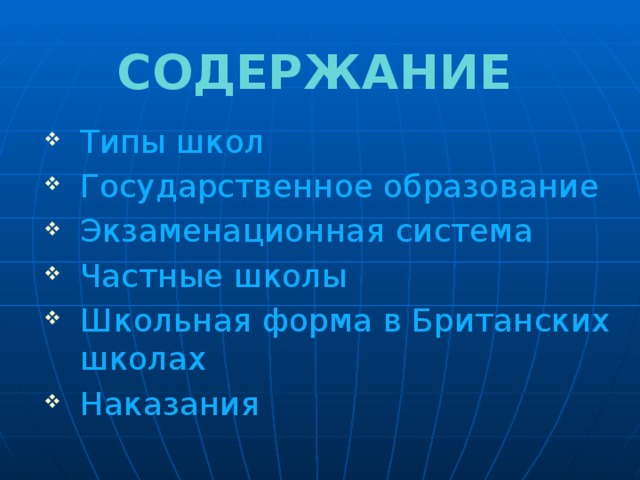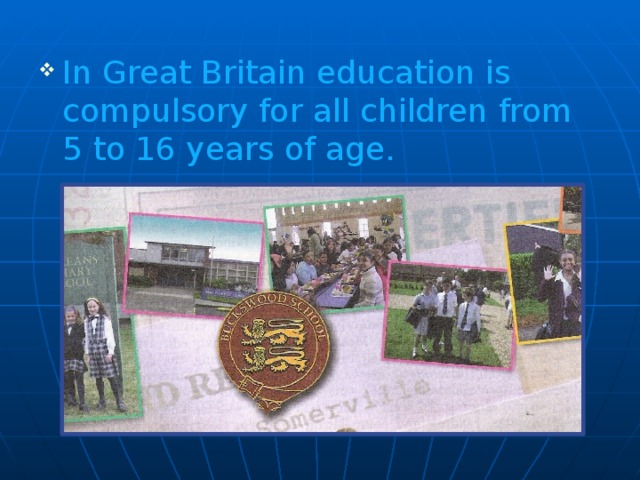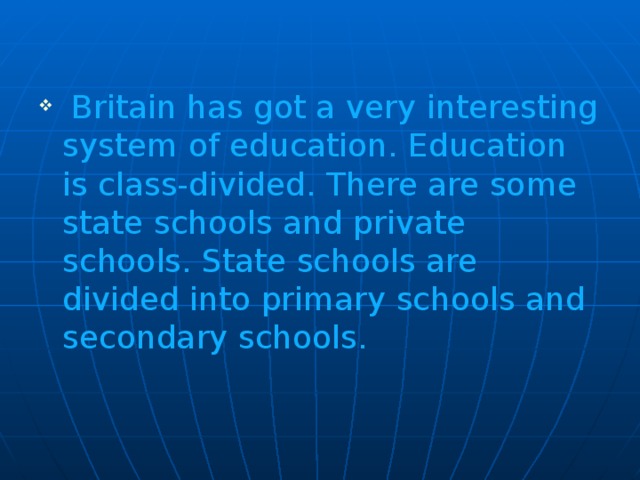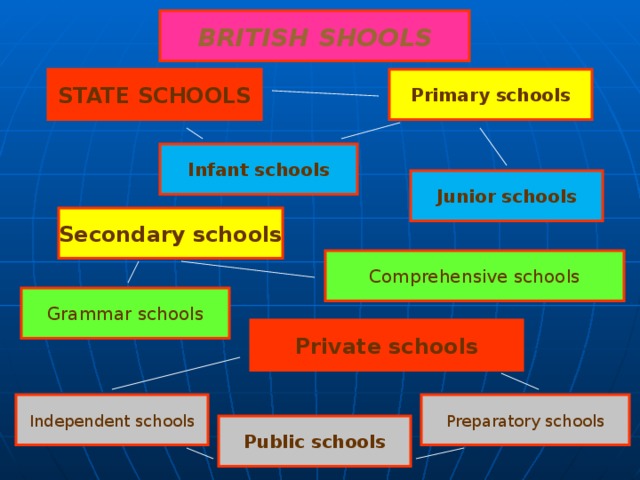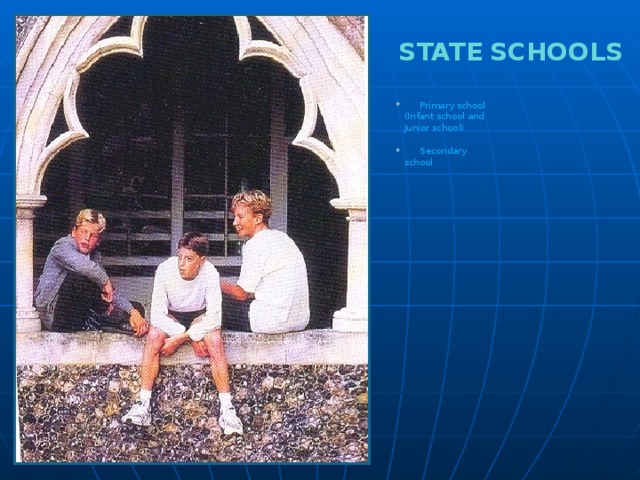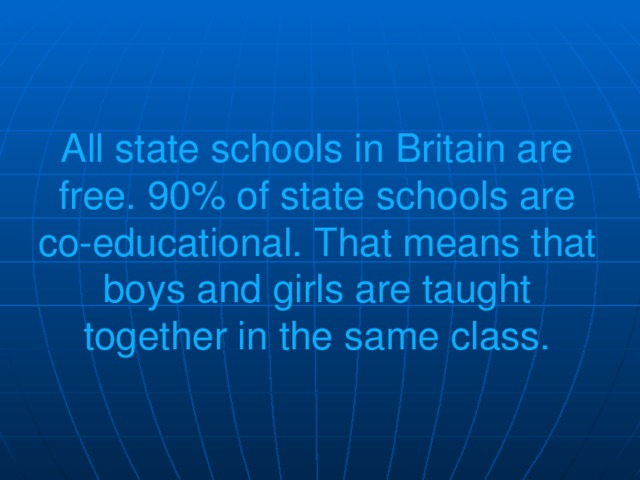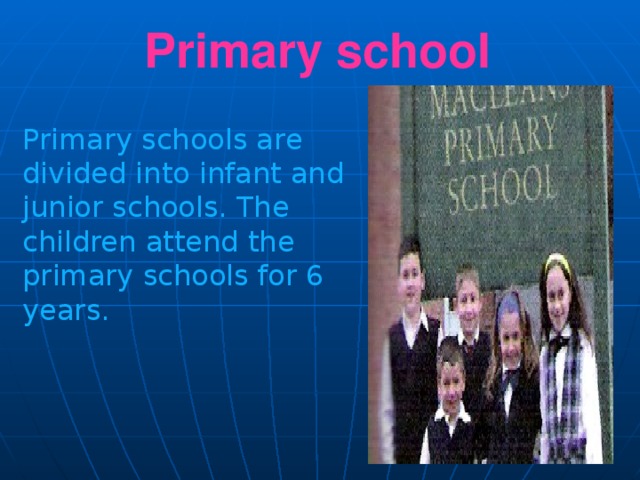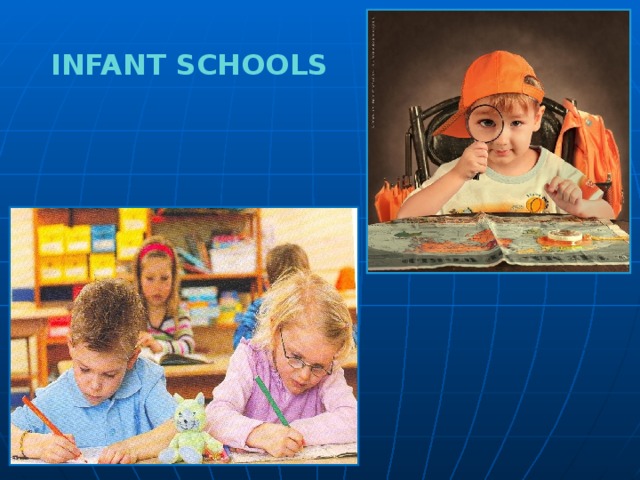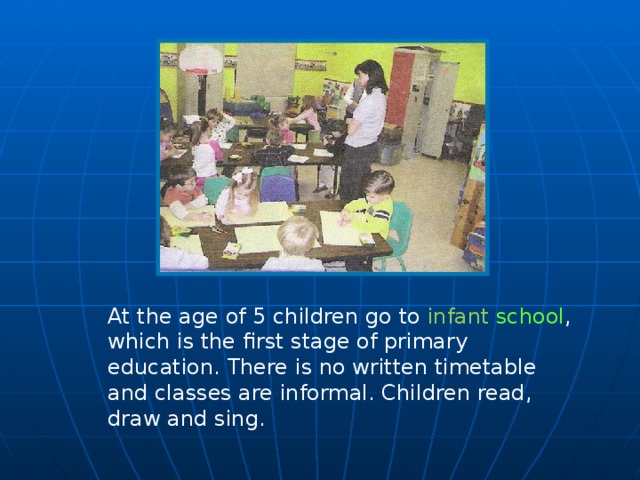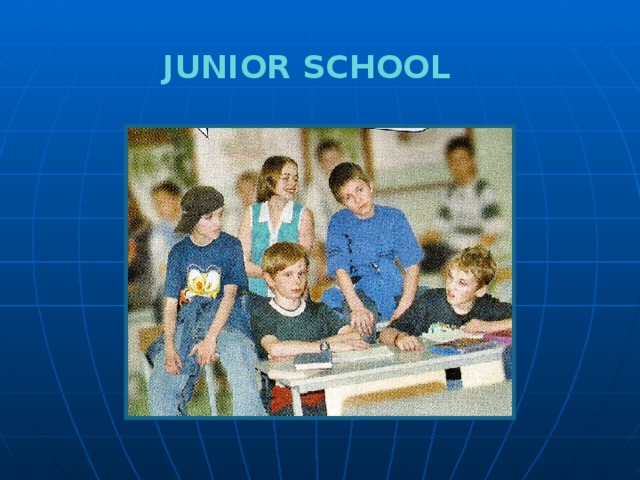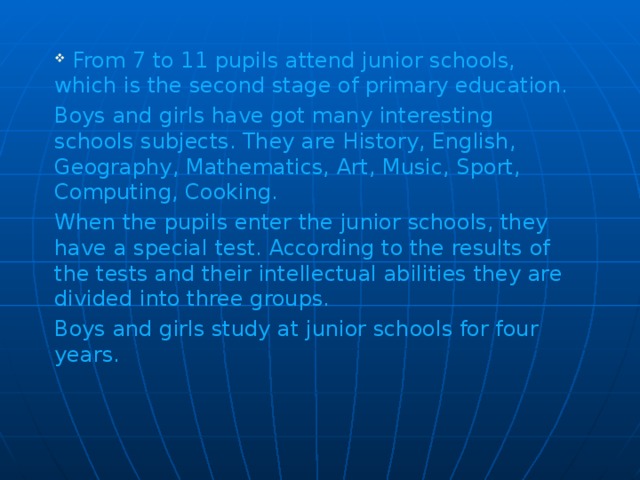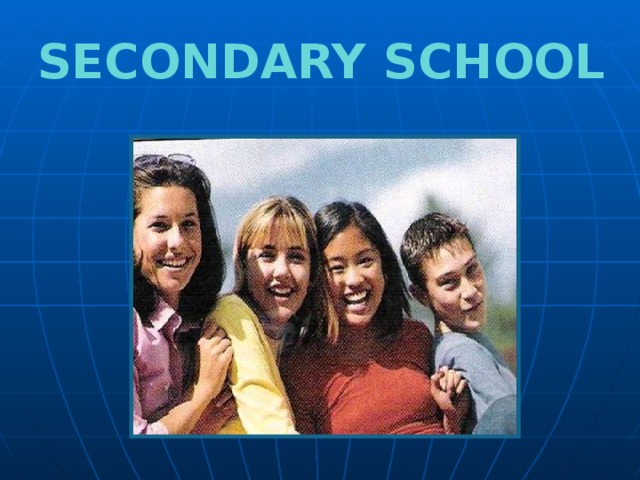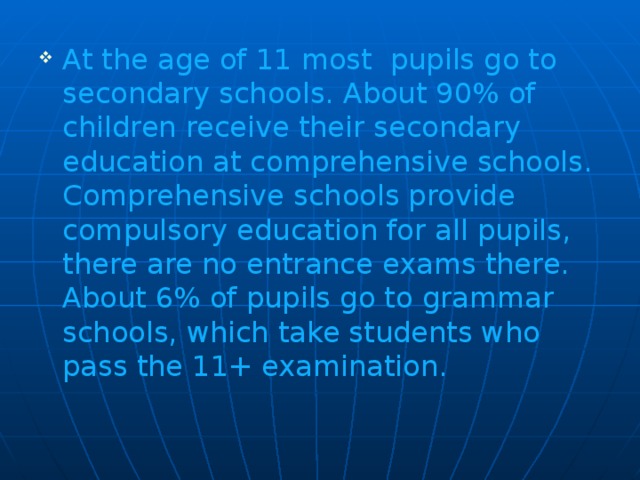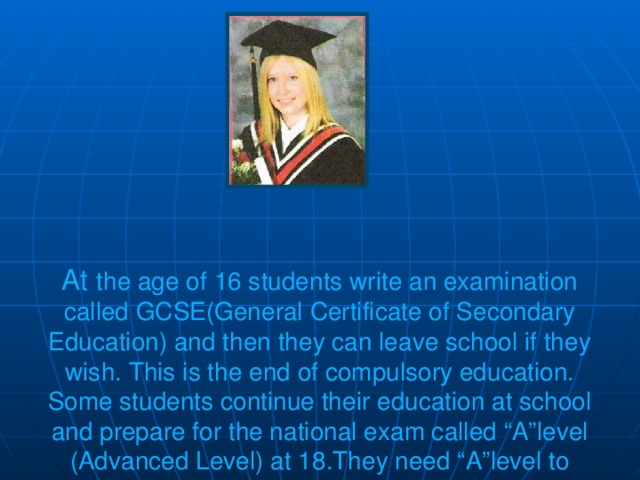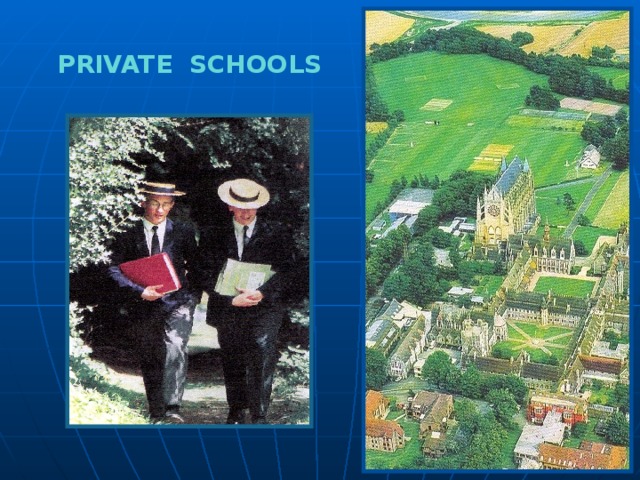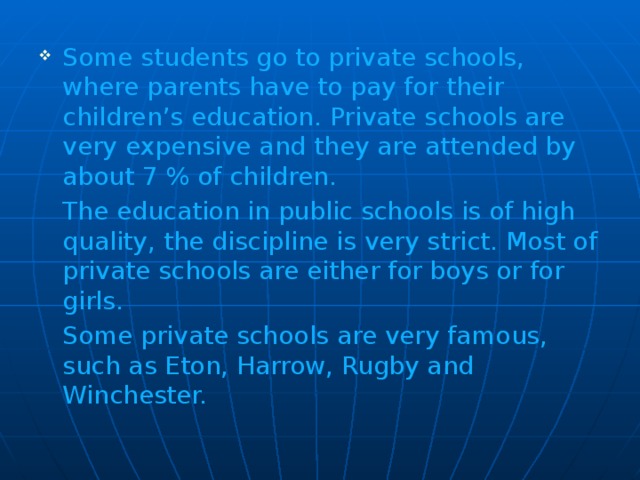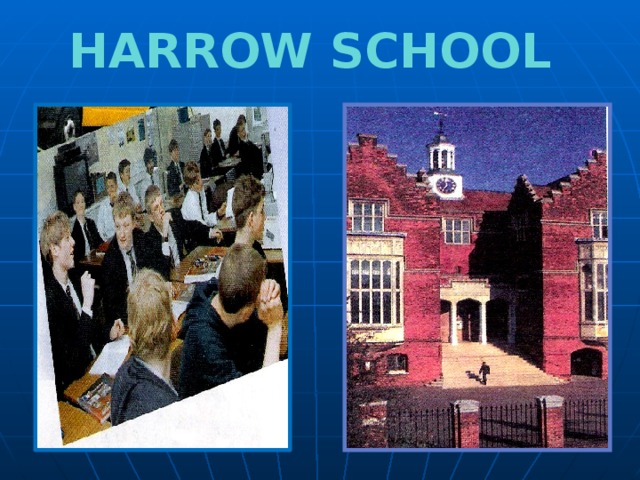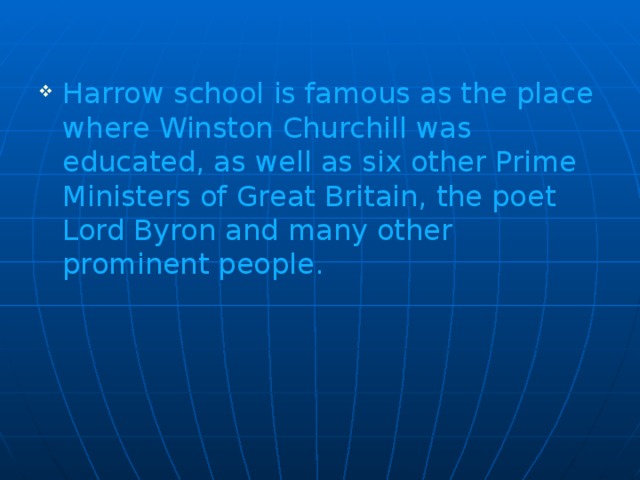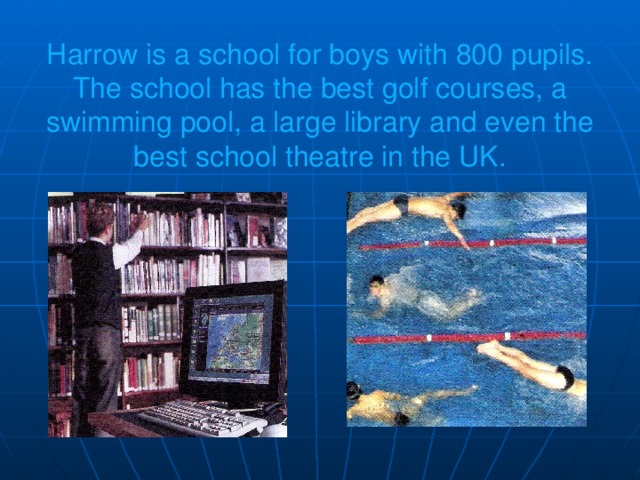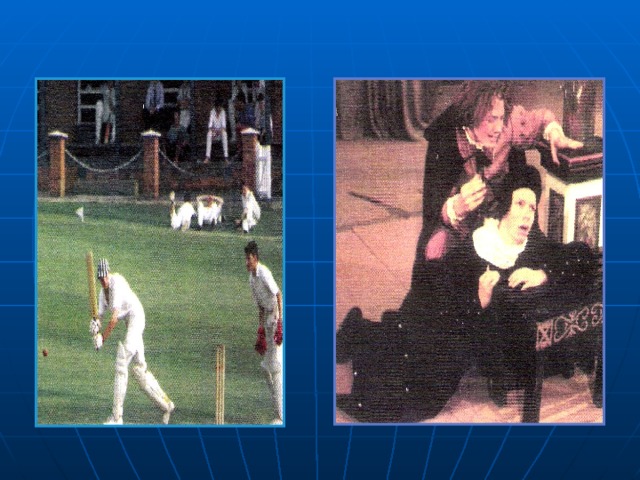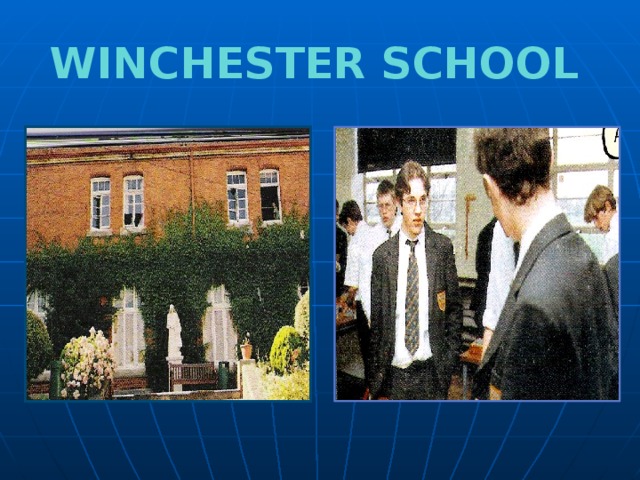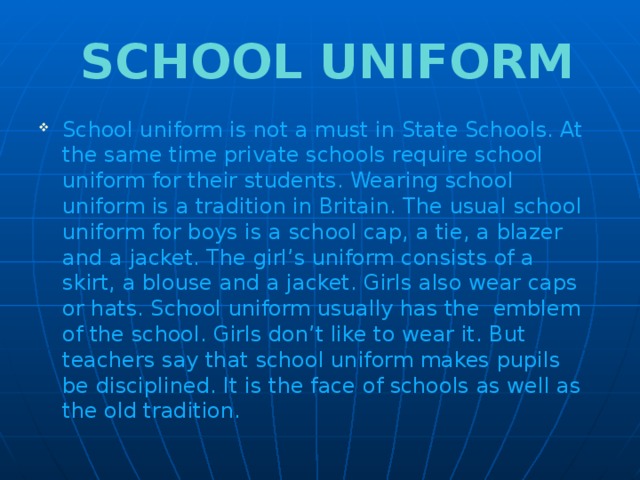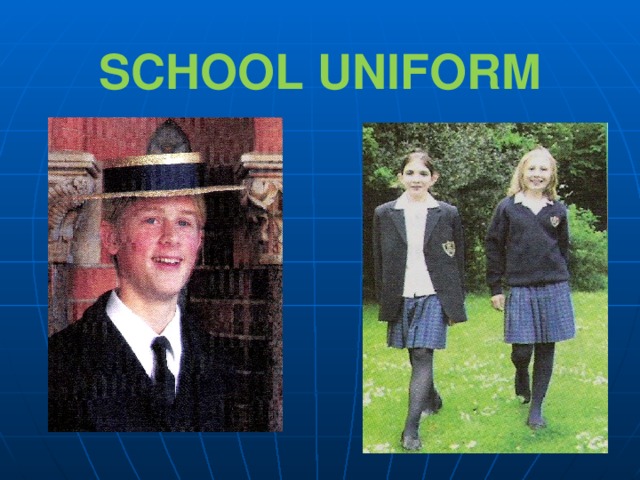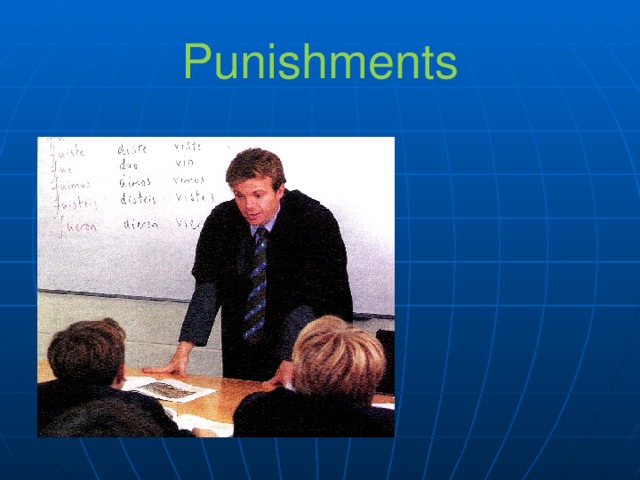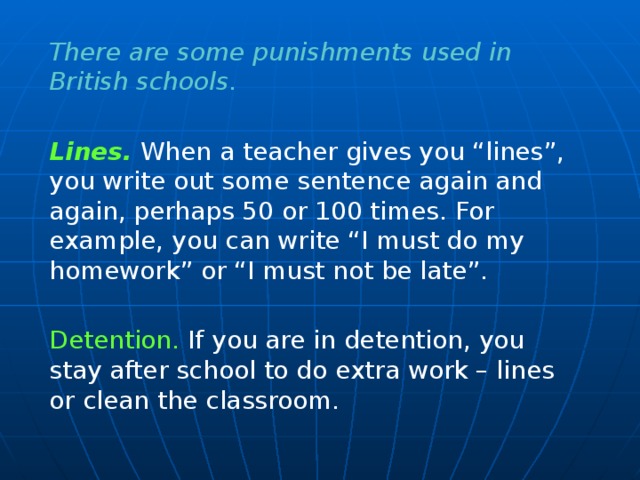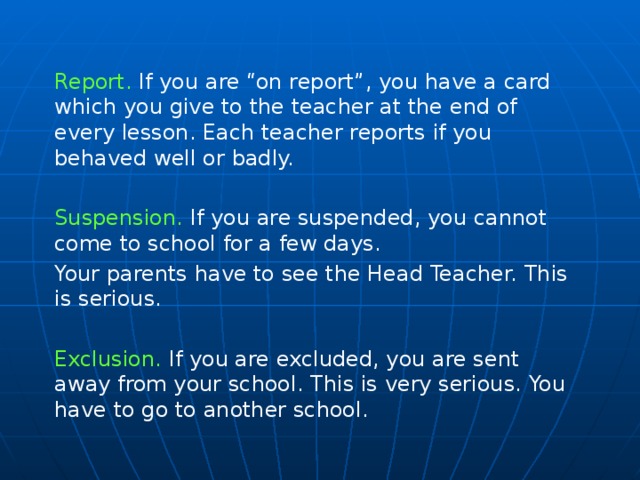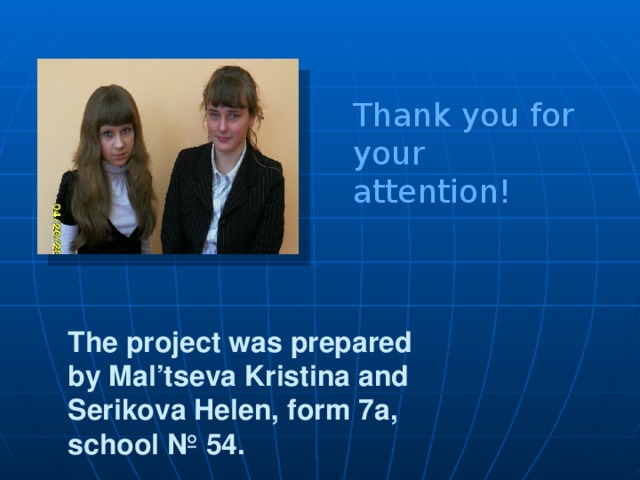Презентация создана для проведения уроков в среднем этапе обучения. Она подходит для работы с любым УМК по указанной тематике. Разработка знакомит учащихся с системой образования страны изучаемого языка, дает необходимые культурные знания, развивает умение изучающего чтения, способствует обучению монологу. Презентация воспитывает интерес к жизни зарубежных сверстников и изучению языка.
Работа занимает двадцать три слайда. Вся информация разбита на блоки:
-Типы школ
-Ступени обучения
-Каникулы
-Школьная форма
-Великобритания
-Занятия спортом
-Система оценивания
-Экзамены
Презентация сообщает об основных положениях образования в Великобритании. Любопытные факты об истории возникновения школьной формы, необычной системы оценки или графика каникул будут интересны для российских школьников. Использование фотографий английских школьников в форме, интерьеры зданий школы и фасады Кембриджа и Оксфорда произведут должное впечатление. Использование в работе таблиц, списков и эффектов анимации текста привлекают внимание к важным вещам и облегчают восприятие информации. В разработке затронуты все аспекты системы образования в Британии
Создайте Ваш сайт учителя Видеоуроки Олимпиады Вебинары для учителей
Образование в Великобритании (видеоурок)
Вы уже знаете о суперспособностях современного учителя?
Тратить минимум сил на подготовку и проведение уроков.
Быстро и объективно проверять знания учащихся.
Сделать изучение нового материала максимально понятным.
Избавить себя от подбора заданий и их проверки после уроков.
Наладить дисциплину на своих уроках.
Получить возможность работать творчески.
Просмотр содержимого документа
«Образование в Великобритании (видеоурок) »
Полезное для учителя
Распродажа видеоуроков!
1760 руб.
2510 руб.
1860 руб.
2660 руб.
1770 руб.
2530 руб.
1880 руб.
2690 руб.
ПОЛУЧИТЕ СВИДЕТЕЛЬСТВО МГНОВЕННО
* Свидетельство о публикации выдается БЕСПЛАТНО, СРАЗУ же после добавления Вами Вашей работы на сайт
Удобный поиск материалов для учителей
Проверка свидетельства
